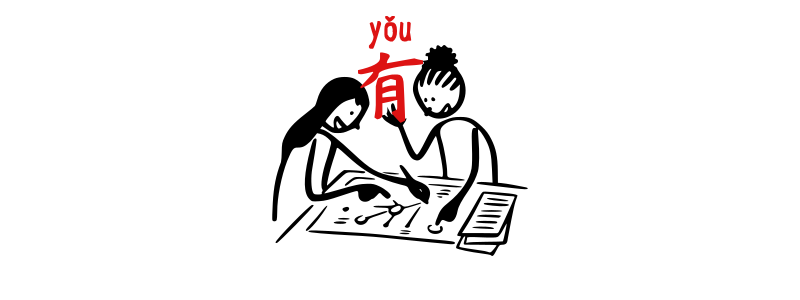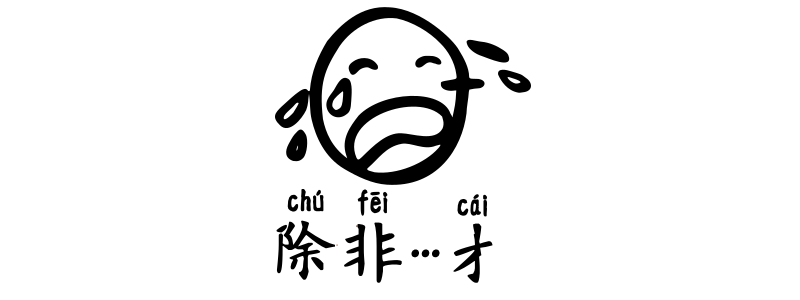Grammar Point:To express the order of several actions can involve many different options in Chinese, but the basic structure is 先 xiān… 再 zài…, which can translate into first… and then… in English. Basic Structure S1 + 先… + S2 + 再… When both subjects are the same, it is ok to drop the S2….
Author: tiffany
Using Yǒu to Express Estimation
Grammar Point:The “you sentence” is known as 有字句 yǒuzìjù in Chinese. The word 有 yǒu serves multiple functions, including expressing estimates and constructing comparative sentences, which will be the focus of this article. you sentence Structure S + 有 yǒu + Number When you are trying to express an approximation or rough estimate of a…
Quantity Complements 1
Grammar Point:A “數量補語数量补语 shùliàng bǔyǔ” (Quantitative Complement) indicates the quantity, frequency, or duration of an action or state. In this article, we will focus on discussing the frequency or quantity of an action or state.hinese Quantitative Complement Chinese Quantitative Complement Structure Adj. + Quantity Complement 我wǒ比bǐ弟弟dìdi大dà三sān歲suì我wǒ比bǐ弟弟dìdi大dà三sān岁suìI am three years older than my brother. 他的tāde錢qián比bǐ我wǒ多duō一些yìxiē他的tāde钱qián比bǐ我wǒ多duō一些yìxiēHe has…
‘Let alone’ in Chinese – hékuàng
Grammar Point:The Chinese word 何況况 hékuàng is a conjunction used to introduce a stronger reason or example after making a general statement. It’s similar to “let alone,” “not to mention,” or “much less” in English and is often used for emphasis. Structure General statement + (更 gèng) + 何況况 hékuàng + specific example This expression is common…
Expressing ‘why bother’ with hébì and hékǔ
Grammar Point:In Chinese, 何必 hébì and 何苦 hékǔ are rhetorical expressions often used to question unnecessary actions or efforts. While both ask “why bother,” they focus on different aspects. Structure S + 何必 + Rhetorical Question It is used to suggest that something is unnecessary or redundant. It often implies a rhetorical question, indicating that there’s no need for…
Showing Perspective in Chinese 2
Grammar Point:In Chinese, the structures 在 zài··· 看来 kànlái and 从 cóng··· 来看 láikàn are commonly used to express a viewpoint. They can be translated as “in someone’s opinion” or “judging from a certain perspective.” Structure 在 + Somebody + 看來来 + Commentary This structure translates to “in someone’s opinion” or “from someone’s perspective.” It highlights a subjective…
Only if in Chinese
Grammar Piont:The structure 除非 chúfēi… 才cái… is used in Chinese to express a condition or requirement that must be met in order for something to happen. It can be roughly translated to “Only if… will…” or “Unless… then…” in English. Structure 除非 + Condition,才 + Result This structure emphasizes that something will only occur under…
Unless in Chinese
Grammar Point:In Chinese, ‘unless’ is expressed as 除非 chúfēi. It is commonly used with phrases such as 否則否则 fǒuzé or 要不然 yàobùrán to convey the meaning of ‘unless A, otherwise B’. Structure Result,除非 + Condition 我wǒ不bú做zuò了le, 除非chúfēi你nǐ幫bāng我wǒ加薪jiāxīn我wǒ不bú做zuò了le, 除非chúfēi你nǐ帮bāng我wǒ加薪jiāxīnI won’t do it unless you give me a raise. 我wǒ不要búyào吃chī這個zhège, 除非chúfēi你nǐ把bǎ紅蘿蔔hóngluóbo拿ná掉diào我wǒ不要búyào吃chī这个zhège, 除非chúfēi你nǐ把bǎ红萝卜hóngluóbo拿ná掉diàoI don’t want to eat this…
Even If in Chinese 3
Grammar Point:To express even if in Chinese, we need to use 即使 jíshǐ or 哪怕 nǎpà and usually followed by the second clause 也 yě. In this pattern, the first clause is a supposition, which is then struck down as impossible by the statement’s second clause. Structure 即使 + ···,也 + ··· Subject 1 can…
Using Yǒu to Express Attachment
Grammar Point:The “you sentence”, we call it 有字句 yǒuzìjù in Chinese. The word 有 yǒu has many functions. In this article, we are going to talk about “attachment” and “possession.” attachment in Chinese Structure S + 有 yǒu + 著/着 zhe + O It use to indicate existence or possession. 兩liǎng個ge國家guójiā之間zhījiān有yǒu著zhe長期chángqí的de友好yǒuhǎo關係guānxī两liǎng个ge国家guójiā之间zhījiān有yǒu着zhe长期chángqī的de友好yǒuhǎo关系guānxiThe two countries have a…









